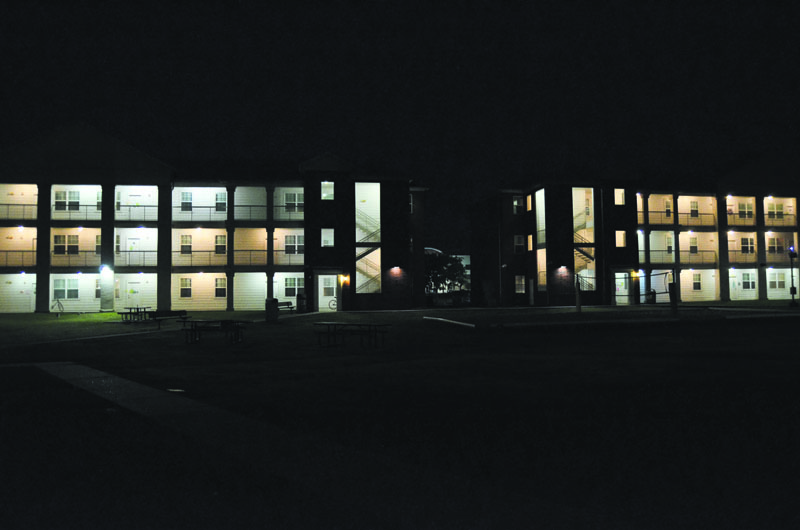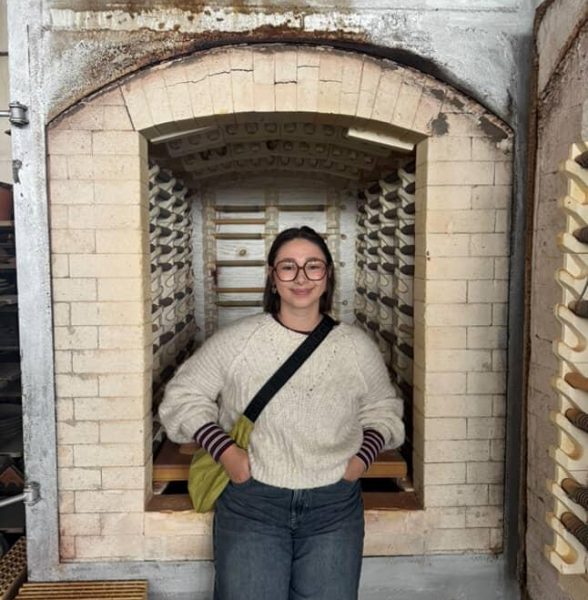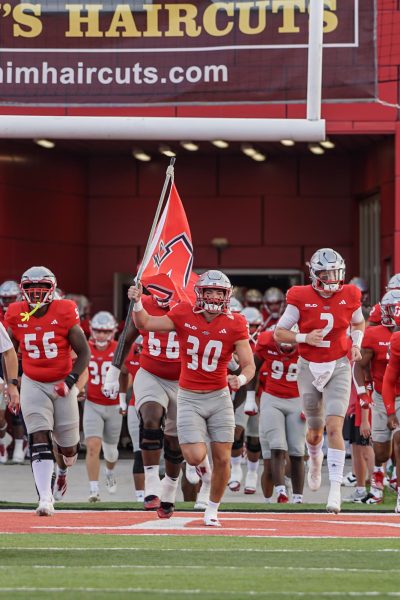University focusing on campus safety due to students’ concerns
Photo by: Christian Lovell
John A. Brady Residential Complex exhibits poor lighting on campus Tuesday night.
Burnt out street lights are causing students to feel uncomfortable on campus after the sun goes down, but University Police, maintenance and the Student Government Association are working together to keep Nicholls a safe campus at night.
Chief of Police Craig Jacuzzo, whose men conduct “night patrols,” said, “Lighting is one of the biggest preventatives of the criminal element.”
Accompanied by electricians, Jacuzzo said there is a No-Lights List made on these patrols that is then sent to the maintenance crew for replacements or repairs needed.
Along with that list, the annual “safety walk” conducted by the University Police, Division of Student Affairs, Office of Physical Plant and the Office of Environmental Health and Safety collect another. The last No Lights List collection, done on Nov. 19, was updated on Mar. 26, noting all of the dark areas on campus in need of attention. Mike Davis, director of facilities, said the list is currently being worked through. Finding space for bucket trucks during schools hours working overtime being no longer being allowed and expenses for doing the work are all things that can hinder some replacements.
“We work very hard to keep this campus as safe as possible,” Davis said. “If there is an immediate problem, we act right away. If it’s a single street light out, it may be out for a little while until we are able to get to it.”
SGA is helping to speed things along after noticing a few bulbs burnt out along the safety walk. In an e-mail from SGA President Adam Lefort it was noted that the bulbs are relatively expensive and that SGA is currently waiting on a quote to write a motion to buy bulbs to increase safety on campus.
While that’s in progress, some Nicholls students take it upon themselves to stay safe on campus at night.
Angela Andrews, an accounting junior who lives in South Babington Hall, said she gets someone to walk with her if she goes anywhere at night. Kelia Dufrene, a secondary education junior, said she does the same or calls someone so they will know her whereabouts incase anything does happen. Both agree that lighting is a huge factor in them feeling comfortable walking alone at night, but things can happen regardless.
“It’s just society lately,” Dufrene said. “It’s really hard to go out at night by yourself, especially as a woman in your twenties. You see a lot of stuff happening in the news, and it’s just scary.”
“There’s no changing the way most people act, you know?” Andrews said. “I guess having more lights or call boxes would help a little bit more, but would it eliminate the problem? Probably not, but it could make it better.”
Culinary sophomore A.J. Dayon said that there is fear and suspicion, especially walking from Ellendar to Babington Halls.
“I don’t see what they could do about lighting,” Dayon said. “Personally, I feel comfortable. If people are scared, something needs to done about it.”
D’Andre Bush, another culinary major, said he also feels comfortable on campus at night, but he could see how others might not feel that same.
“I do feel some places are darker than others, and I do understand why some people get scared,” Bush said. “Some places are kind of bad, like the area between the library and Gouaux Hall is super dark.”
Mike Davis said he has noted that area being a place of concern, and they haven’t found the problem yet. Davis said if anyone has severe issues with campus lighting, it should be brought to his attention so it can be handled accordingly.
“The first level of you not being a victim is taking precautions,” said Jacuzzo.
Jacuzzo also stressed that the officers are always available to escort students who feel uncomfortable or unsafe on campus at night He said students need to always plan a well-lit route when walking on campus at night, check the back seat of their cars for intruders, keep an in-case-of-emergency-contact in their cell phones and never too caught up with texting while walking to stay aware of surroundings.







